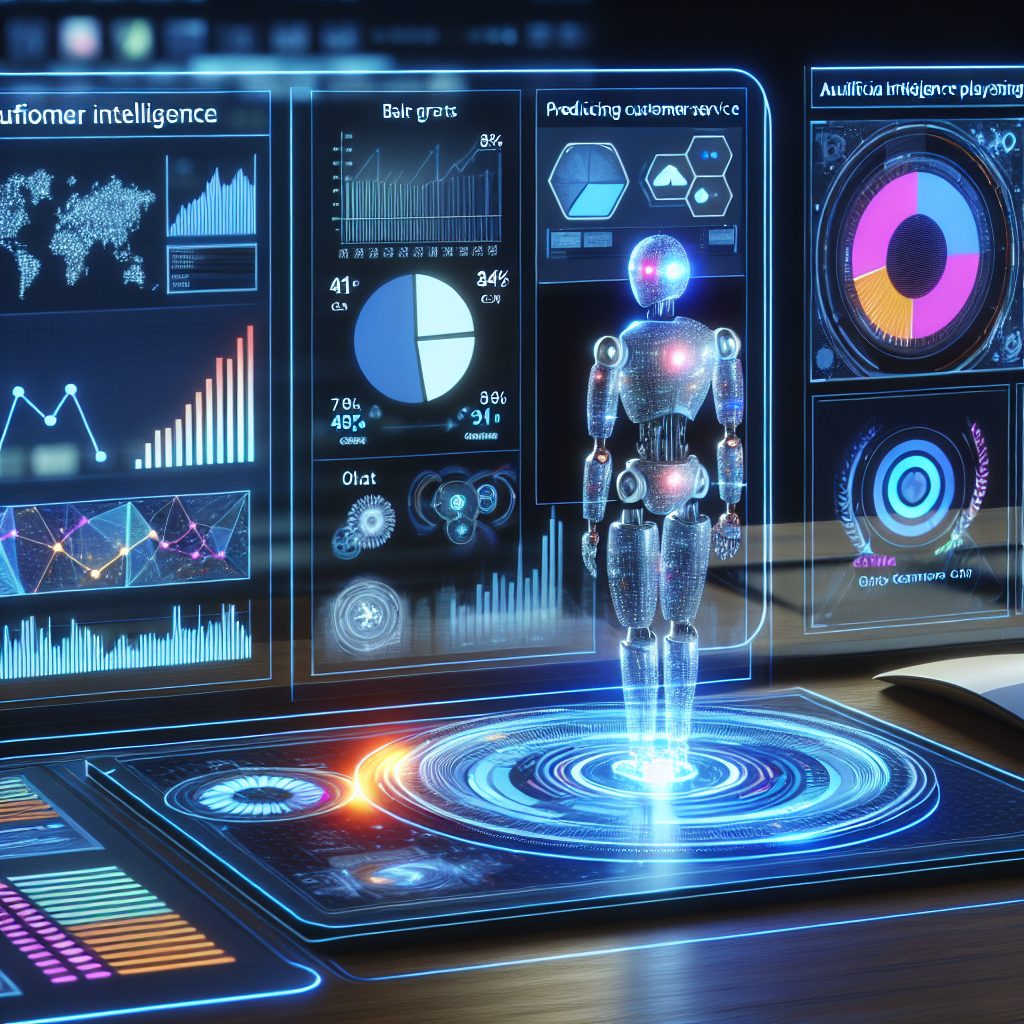The Role of AI in Predictive Customer Service Analytics
In today’s digital age, customer service has become more important than ever. With the rise of social media and online reviews, customers have the power to make or break a business with just a few clicks. As a result, companies are increasingly turning to AI-powered predictive analytics to improve their customer service and ensure customer satisfaction.
AI, or artificial intelligence, refers to the simulation of human intelligence processes by machines, typically computer systems. In the context of customer service analytics, AI can be used to analyze data, identify patterns, and make predictions about customer behavior. By leveraging AI technologies, companies can gain valuable insights into their customers’ preferences, needs, and behaviors, allowing them to anticipate customer needs and provide personalized and proactive customer service.
One of the key benefits of AI in predictive customer service analytics is the ability to analyze large amounts of data in real-time. Traditional customer service analytics methods often rely on manual data entry and analysis, which can be time-consuming and error-prone. AI, on the other hand, can process vast amounts of data quickly and accurately, allowing companies to identify trends and patterns that would be difficult to detect using traditional methods.
Another benefit of AI in predictive customer service analytics is the ability to personalize customer interactions. By analyzing customer data, AI algorithms can predict individual customer preferences and behaviors, allowing companies to tailor their interactions and offerings to meet each customer’s unique needs. This level of personalization can help companies build stronger relationships with their customers and increase customer loyalty.
AI can also help companies anticipate and address customer issues before they escalate. By analyzing data from past interactions, AI algorithms can identify patterns that indicate potential problems, allowing companies to take proactive steps to prevent issues from occurring. For example, if a customer has had multiple complaints about a particular product, AI can alert customer service representatives to reach out to the customer proactively to address the issue before it becomes a larger problem.
Additionally, AI can help companies improve their customer service processes by automating routine tasks and streamlining workflows. For example, AI-powered chatbots can handle basic customer inquiries and provide quick responses to common questions, freeing up human agents to focus on more complex issues. AI can also help companies prioritize and route customer inquiries more efficiently, ensuring that customers receive timely and accurate responses.
Overall, the role of AI in predictive customer service analytics is to help companies better understand their customers, anticipate their needs, and provide personalized and proactive customer service. By leveraging AI technologies, companies can gain a competitive edge in today’s customer-centric market and build stronger relationships with their customers.
FAQs
Q: How does AI in predictive customer service analytics work?
A: AI in predictive customer service analytics works by analyzing large amounts of customer data to identify patterns and trends. AI algorithms can predict customer behaviors and preferences, allowing companies to tailor their interactions and offerings to meet each customer’s unique needs.
Q: What are some examples of AI-powered customer service tools?
A: Some examples of AI-powered customer service tools include chatbots, virtual assistants, and predictive analytics software. These tools can help companies automate routine tasks, provide quick responses to customer inquiries, and anticipate customer needs.
Q: How can AI help companies improve their customer service processes?
A: AI can help companies improve their customer service processes by automating routine tasks, analyzing customer data to identify trends and patterns, and providing personalized and proactive customer service. By leveraging AI technologies, companies can streamline their workflows, prioritize customer inquiries more efficiently, and build stronger relationships with their customers.
Q: What are the benefits of AI in predictive customer service analytics?
A: The benefits of AI in predictive customer service analytics include the ability to analyze large amounts of data in real-time, personalize customer interactions, anticipate and address customer issues before they escalate, and automate routine tasks to streamline workflows. By leveraging AI technologies, companies can gain valuable insights into their customers’ preferences, needs, and behaviors, allowing them to provide better customer service and build stronger relationships with their customers.

